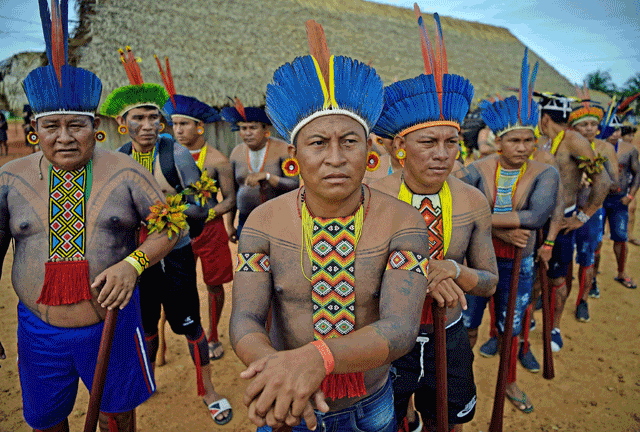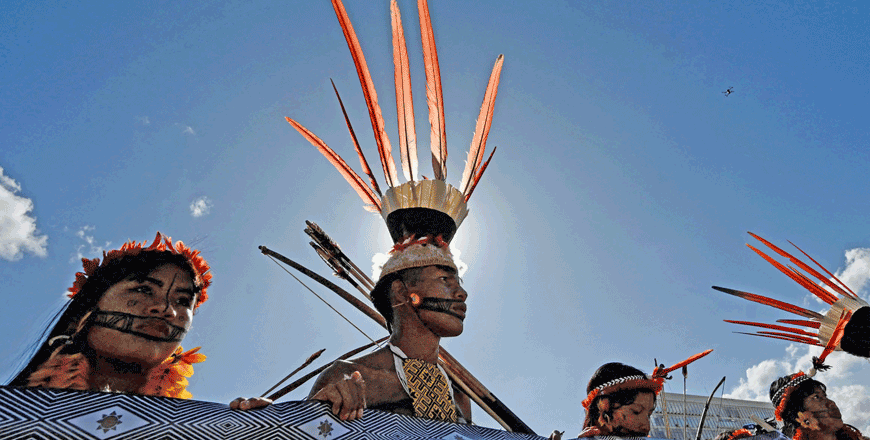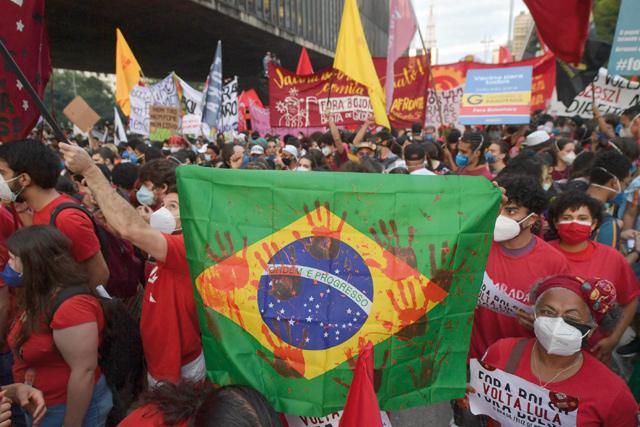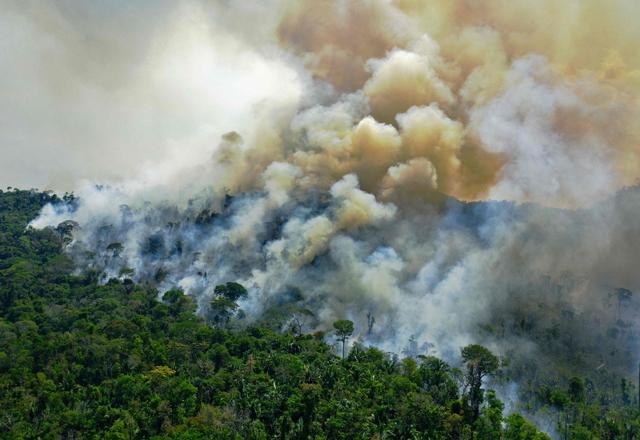You are here
Brazil census identifies a much larger indigenous population
By AFP - Aug 07,2023 - Last updated at Aug 07,2023

Members of the Tapirape tribe wait to perform a ceremonial dance for their leader Cacique Raoni Metuktire of the Kayapo tribe, in Piaracu village, near Sao Jose do Xingu, Mato Grosso state, Brazil, on January 17, 2020 (AFP photo)
RIO DE JANEIRO — Brazil’s count of its Indigenous population rose by 89 per cent from 2010 to 2022, to nearly 1.7 million people, though the rapid growth was attributed partly to new methodology, according to census results released Monday.
Under the new count, Indigenous people make up 0.83 per cent of the South American country’s total population of 203 million, up from 0.47 per cent at the previous census, said the national statistics institute, IBGE.
However, IBGE noted “limits” in comparing the 2010 and 2022 Indigenous figures, because it had sent census-takers to more Indigenous reservations and used a new methodology, asking people in all native communities if they self-identified as Indigenous.
Brazil’s overall population grew by 6.5 per cent from 2010 to 2022, to 203.1 million.
The country’s more than 700 Indigenous reservations are home to 689,000 people, IBGE said.
The largest, the Yanomami reservation in the Amazon rainforest, has 27,000 inhabitants.
The figures come as a divisive debate rages in Brazil over Indigenous lands.
The supreme court is currently hearing a so-called “trial of the century” over whether new Indigenous reservations can be created on land where native communities were not present in 1988, when Brazil’s current constitution was ratified.
The lower house of Congress passed a bill in May to codify that restriction.
But activists say that violates Indigenous people’s rights, given that many were forced from their ancestral lands, including under the military dictatorship that ruled Brazil from the 1960s to the 1980s.
Leftist President Luiz Inacio Lula da Silva, who took office this year, began creating new Indigenous reservations in April, after a hiatus under his far-right predecessor, Jair Bolsonaro.
Bolsonaro, an agribusiness ally who pushed to open protected Indigenous lands to mining and industry, argued that Brazil’s Indigenous reservations — covering 11.6 per cent of the national territory — amount to “too much land for too few Indians”.
Scientists, however, say that ensuring native people’s land rights is one of the best ways to stop the destruction of the Amazon and other forests, key resources against climate change.
Related Articles
BRASÍLIA — Brazil’s Supreme Court on Wednesday postponed a critical trial over Indigenous ancestral land rights as demonstrators protested i
RIO DE JANEIRO — Tens of thousands of people in Brazil staged another day of protest against President Jair Bolsonaro, in particular for his
RIO DE JANEIRO — Brazil registered the highest number of fires in the Amazon for the month of May since 2004, and the highest ever for the C


















